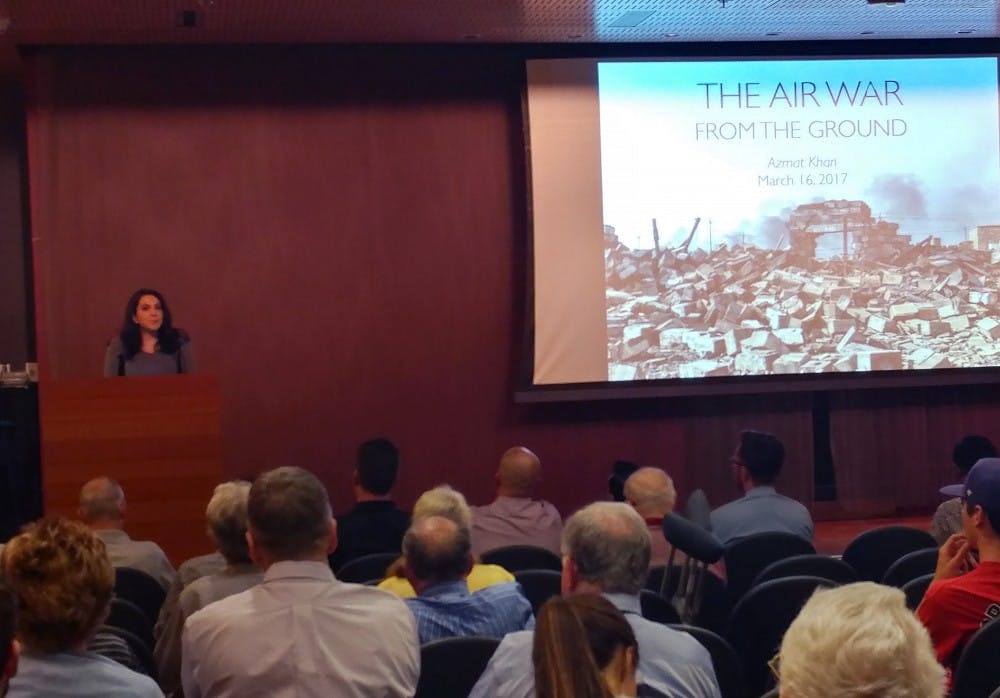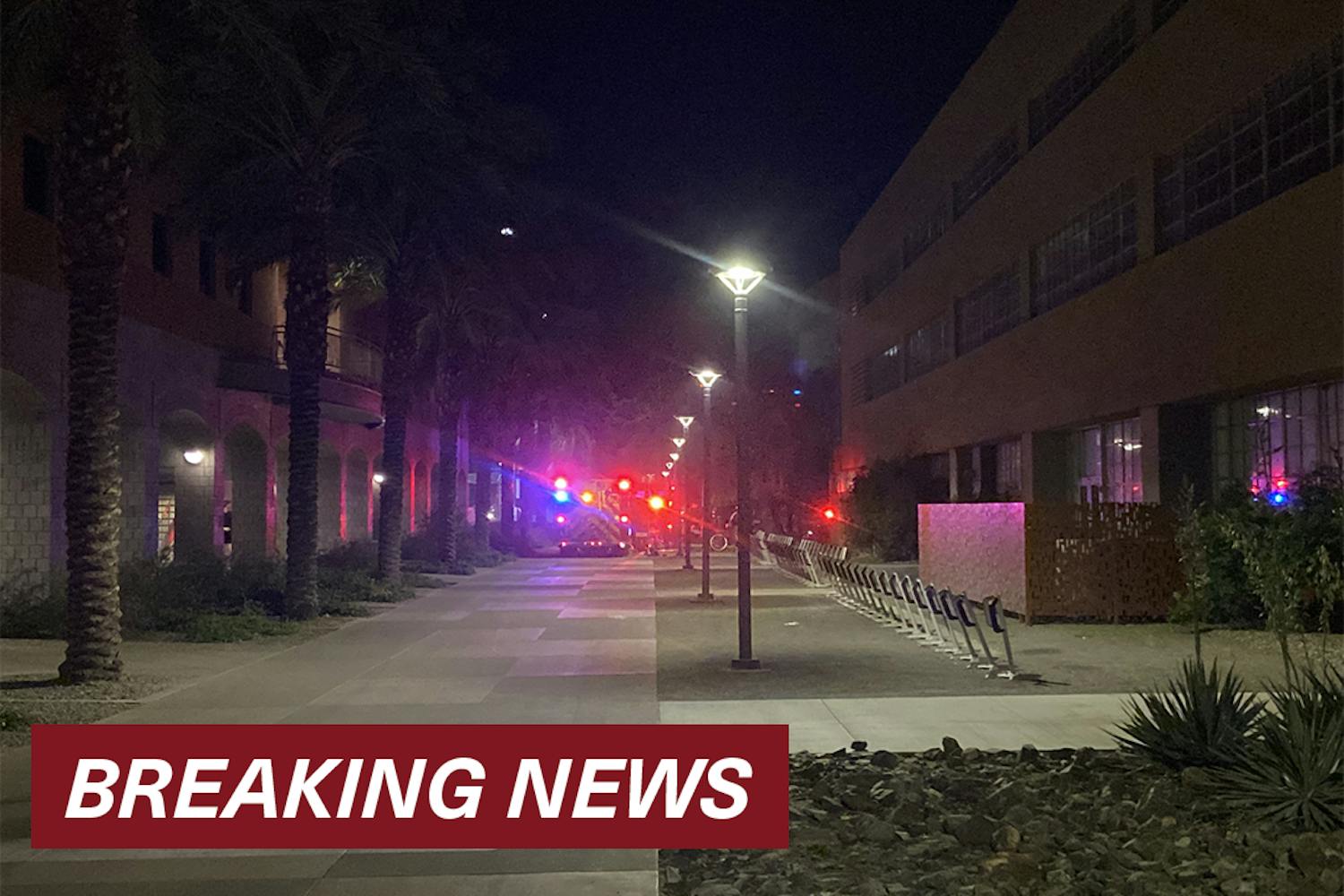For three years, a group of over 90 ASU faculty have studied the ever-changing implications of war and conflict.
The Center on the Future of War delves into social, political, cultural and economic consequences of the always fluctuating worldwide conflicts and wars. Right now they are focusing on ISIS, the conflict in the Middle East (and reconciliation) and the National Security Agency.
The Center is a collaboration between New America and ASU, with co-director Peter Bergen stationed in Washington D.C. and the other co-director Daniel Rothenberg stationed at ASU.
Jeffrey Kubiak, a senior fellow and professor of practice at the school of politics and global studies, said the Center is an experiment of tying the policy world to an innovative and powerful research university like ASU.
“It’s really the connective tissue between the academic and the policy world, trying to engage both in conversation to create something better,” Kubiak said.
Kubiak said they don’t study the future because the future hasn’t happened yet, and they don’t research because there’s no data.
“You look very hard to understand the nature of conflict in war, the societal setting in which it resides and think through the ramifications of the trends and ideas that are resonant with society today, and work yourself into some kind of understanding of where conflict might go,” he said.
Kubiak is currently developing an online master’s degree in global security that will be available in fall semester 2017. He said the curriculum will be closely tied to the Center.
Kubiak said one of the main events that the Center hosts at ASU is the spring speaker series. The Center, linking ASU to New America, hosts an annual conference in Washington D.C.
Future of War Conference 2017 Trailer - New America, ASU from ASU in Washington DC on Vimeo.
“We’re talking about the future of the army, future of the air force,” he said. “We’ll look at what’s next for Iraq and Syria. Can we stop war before it starts? They’re all very, very relevant topics to today’s discussions about security.”
With a speaker from Google and a presentation about social media, Kubiak said technology is going to play a huge role in the conference. However, the conference topics are usually similar to those of the last year’s conference.
“When you’re thinking about the future, you’re often thinking about trends,” he said. “A lot of the trends become clear over time. They don’t generally change dramatically.”
Kubiak said even if people don’t like thinking about war, there are dangers that need to be addressed.
“I think the Center plays a very interesting role in creating platforms for discussion, not just respond to the future but shape the future. That’s a very powerful thing.”
Daniel Rothenberg, the co-director stationed at ASU, introduced Azmat Khan, a Future of War fellow and an investigative reporter, during one of the spring speaker events. He said the series was one of the first things they decided to do when they started the Center.
“The idea is to bring together both major thought leaders and national security traditionalists, so we have, for example, head of the United States Airforce, as well as the head of the U.S. Army,” he said. “We also have some more atypical voices.
Rothenberg said he moderated a discussion with David Wood, a 2012 Pulitzer Prize recipient, as the first speaker of this year's Spring speaker series.
The spring speaker series happens all throughout Spring semester, this year starting Jan. 17. The speakers range from a variety of authors and journalists.
Joe Brett, a retired ASU faculty member, completed podcasts at ASU closely related to the Center’s mission and does recordings of the guest speakers that come to ASU for the Center. He is also a part of the Veterans Heritage Project, which connects teenagers with veterans in their communities. Brett said he really wanted to move the topic of future of warfare to high schools and junior colleges.
He said the whole point of the Center is to keep up with the current events and the new administration.
“We are the people who are on top of the issues going on right now everywhere in the world including with technology and the use of technology: drones, cyberwar,” he said.
Brett said the people in foreign policy are very important with keeping up with current events.
“They know historically what our relations have been and hope to be with China, with South America, with Europe, with Russia (and) with the Middle East,” he said. “These are the best experts in the world on that topic and having them so close is a really wonderful thing for all of Arizona.”
Brett said he thinks people are privileged to listen to such bright minds, and it makes him a more informed citizen.
“Education doesn’t stop at college,” he said. “So we have to be self-educated. I’m 70, and I’m still thrilled by great minds. ASU is now providing that.”
Reach the reporter at anbuechl@asu.edu or follow @alexa_buechler on Twitter.
Like The State Press on Facebook and follow @statepress on Twitter.




